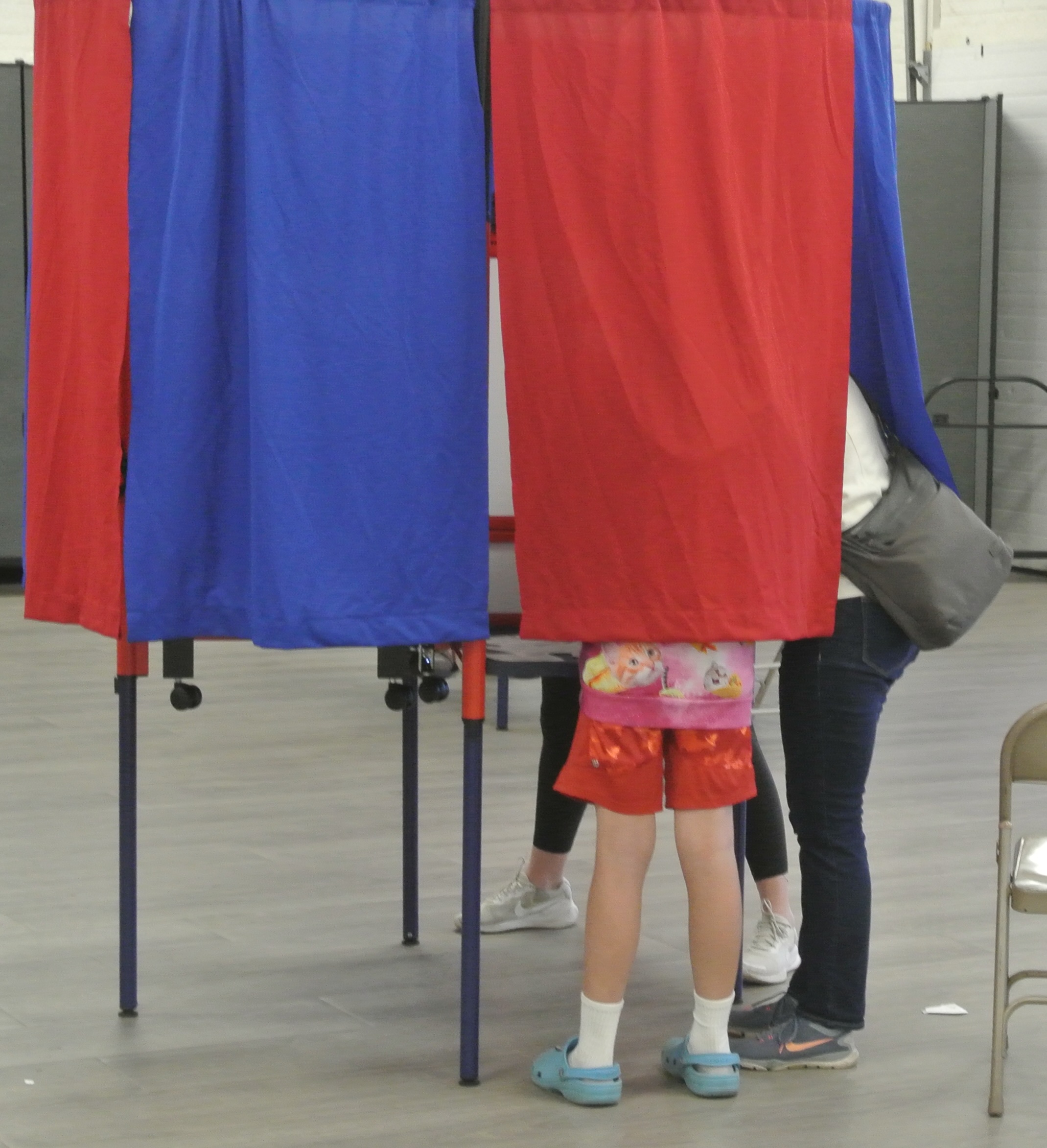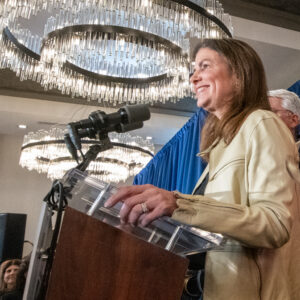When then-Executive Councilor Chris Sununu ran for governor for the first time, he won a narrow 2.3 percent victory, outpacing Donald Trump by just 2.5 points.
Eight years later, Kelly Ayotte won her first governor’s race by a whopping 10 points, outpacing Trump by 5.4 percent, in her victory over former Manchester Mayor Joyce Craig:
The vote total: 409,450 to 333,993, or a 9.8 percent margin.
Vice President Kamala Harris defeated Trump 50.4 to 47.6 percent.
The final numbers, released by Secretary of State David Scanlan Thursday, also reported a record turnout in the Granite State, which he had predicted, but with an even larger vote total. Scanlan predicted 824,000. The actual total: 834,651. That broke the previous record set in 2020.
Total U.S. voter turnout is expected to be slightly lower than 2020, yet another data point showing New Hampshire outperforming the nation.
According to the University of Florida Election Lab, as of Thursday, New Hampshire had the fourth-highest voting-eligible population turnout in the country and the highest in New England.

Keene Ward 2 on Election Day 2024
(CREDIT: Jeffrey Hastings)
That’s good news in the eyes of the Democracy Defense Project, headed in New Hampshire by former U.S. Sen. John E. Sununu (R) and former U.S. Rep. Dick Swett (D)
“Once again, the Granite State conducted free, fair, secure and transparent elections,” they said in a statement. “Thanks to our Secretary of State’s Office and the trusted local election leaders, New Hampshire’s voters were able to show up and know that their votes would be counted, and that no matter who won or lost at the end of the day, the results would be the true will of the people.”
Scanlan told NHJournal he credited the state’s “smooth and transparent” election process for encouraging turnout. And, he added, Tuesday’s blue skies and warm weather didn’t hurt, either.
“I visited several polling places, and people were in a good mood. There were lines, but the voters were patient and the poll workers did a fantastic job as they always do.”
But record turnout doesn’t explain Ayotte’s unexpectedly large victory margin. While polls consistently showed Ayotte leading Craig, the margin averaged around three percent, not nearly 10.
So, what happened?
“I think it starts with the extremely tight, effective and efficient campaign Ayotte ran,” said veteran GOP strategist Michael Dennehy. “When she was focused on her message of continuing the Sununu economy, stopping the Craig income tax, and Craig’s destruction of Manchester, she was unstoppable.”
Jason Grosky, chair of the Rockingham County GOP, told NHJournal he always believed Ayotte would do much better than the polls were showing.
“We had a former attorney general and U.S. senator running against a Democratic mayor who failed the city of Manchester. The math always added up for Ayotte.”
Craig declined to comment on the results, and none of the Democrats contacted by NHJournal would comment on the record, either.
Off the record, Granite State Democrats expressed frustration with the former mayor’s lackluster performance, even as their party’s congressional candidates — U.S. Rep. Chris Pappas and former Biden administration official Maggie Goodlander — were cruising to easy victories.
Several Democrats said they believe Executive Councilor Cinde Warmington, who was defeated by Craig in the primary, would have been a stronger candidate. They questioned the decision of party Chairman Ray Buckley boosting Craig at Warmington’s expense.
One Democrat also gave Ayotte credit for how she handled the abortion issue, the number one topic of Craig’s attack ads.
“You have to give Ayotte credit for taking a stance on abortion that people support: No new bans, no [additional] restrictions. People believed her, and they didn’t believe Joyce when she said Kelly would restrict abortion access.”
One aspect of Craig’s campaign that even Democrats confessed they found confusing was her decision to campaign so closely with Massachusetts Gov. Maura Healey, even as Ayotte was driving home her “Don’t MASS Up New Hampshire” message.
Republican campaign veteran Patrick Griffin believes Craig’s mistake added to Ayotte’s margin.
“Kelly knows the state and the people and, more importantly, what matters to voters here. Maura Healy and Joyce Craig were trying to sell a Massachusetts makeover of New Hampshire, and that was a bad idea,” Griffin said. “Craig was tone deaf from start to finish.”
In the latest edition of the New Hampshire Journal podcast, Drew Cline of the Josiah Bartlett Center for Public Policy agreed.
“I know she got some attacks for this, but I thought it was smart to run, right off the bat, on ‘Don’t Mass up New Hampshire,’ just laying that marker down. It was saying, ‘We are drawing a line: We’re not raising taxes.’ She had a sense that Democrats in New Hampshire are drifting in that leftward, tax-increase direction.”
And, adds Dennehy, there’s one more person who deserves part of the credit.
“I think Sununu’s all-out effort had a significant impact on her victory. That last ad he did for her was the best ad I’ve ever seen in Chris Sununu’s history,” Dennehy said.
“Add in Trump keeping the race closer than anyone expected in New Hampshire, and you have the perfect storm of events that all worked in Ayotte’s favor.”





